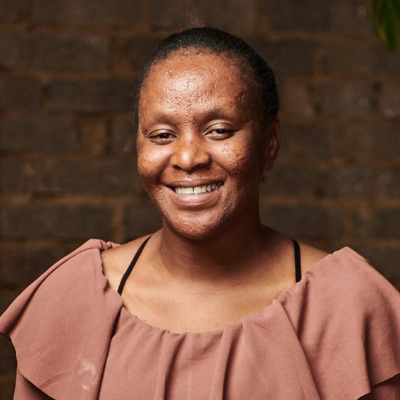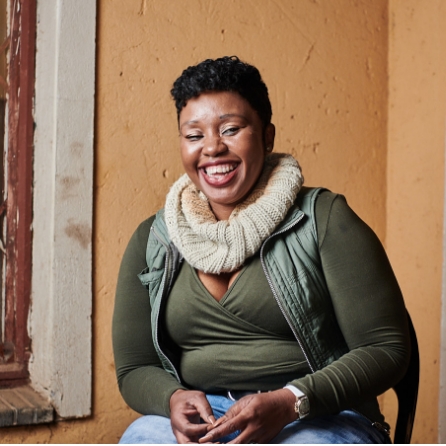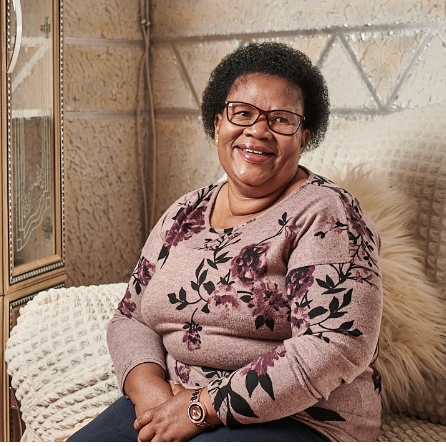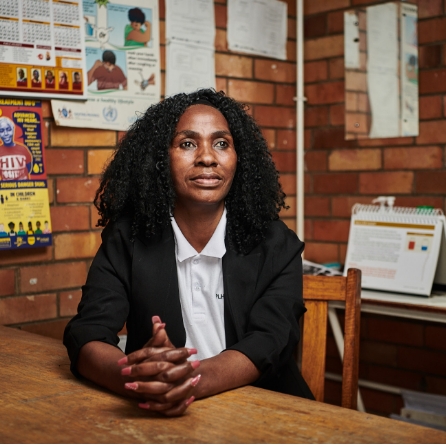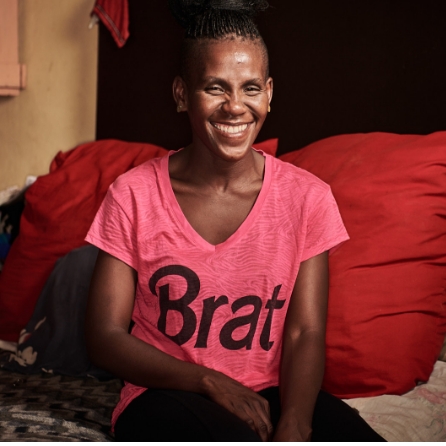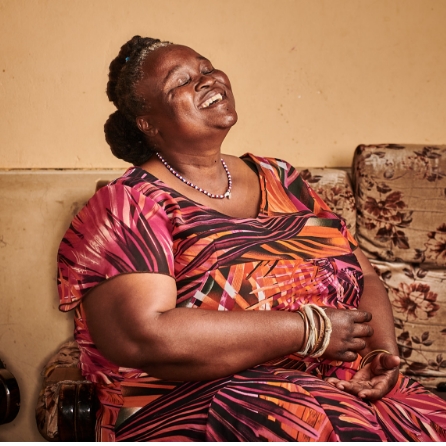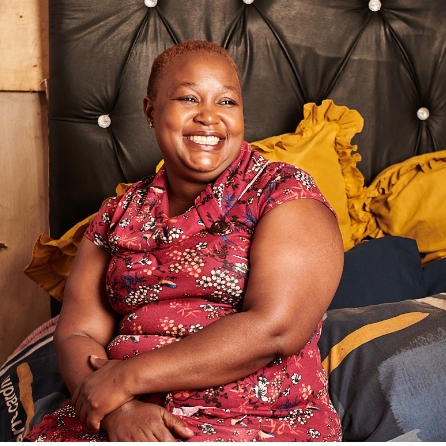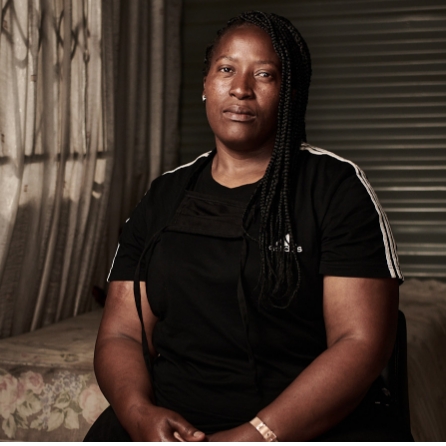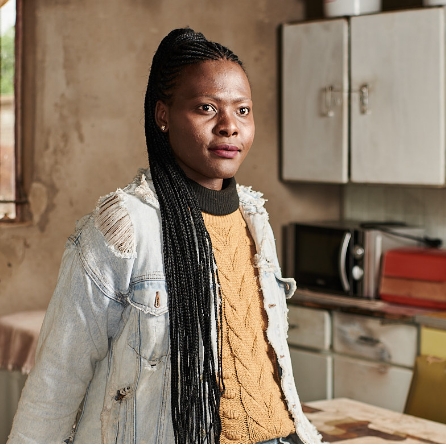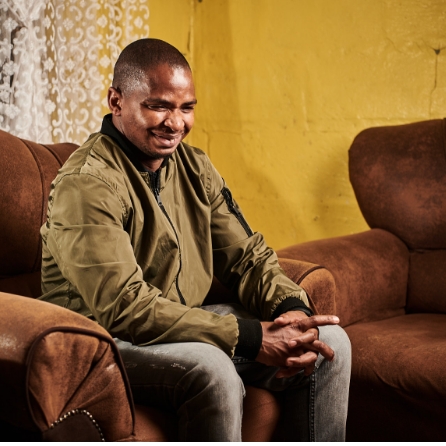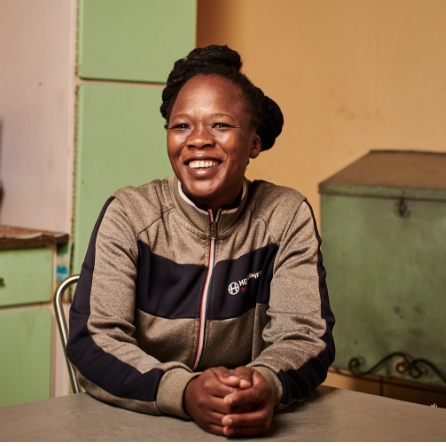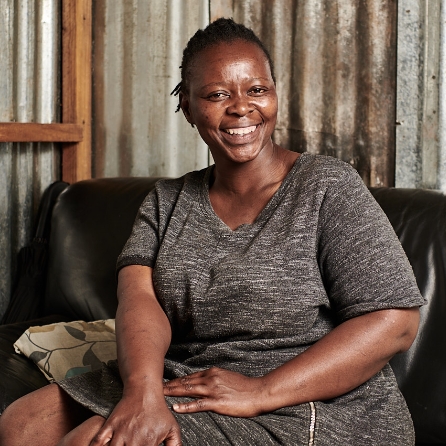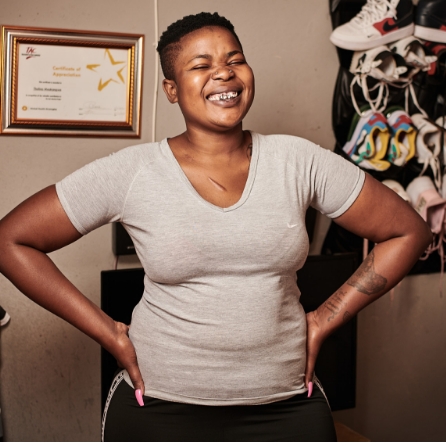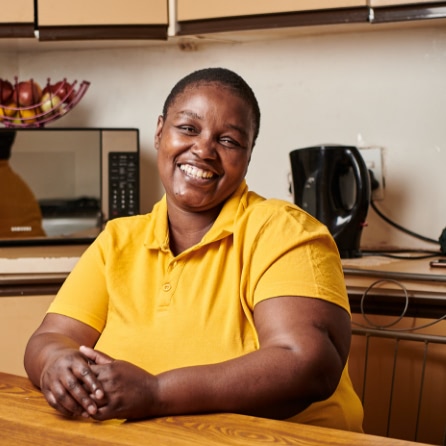Lester Baloyi, 39, Marshalltown, Joburg
 As a TAC counselor, Lester Baloyi sees misinformation as one of the biggest challenges in combatting the stigma around HIV. She says that people are not easily able to access reliable information. "If you know you are HIV positive, acceptance is the most important thing... Knowing that you are living with HIV does not mean that HIV has to control you. You can control HIV."
As a TAC counselor, Lester Baloyi sees misinformation as one of the biggest challenges in combatting the stigma around HIV. She says that people are not easily able to access reliable information. "If you know you are HIV positive, acceptance is the most important thing... Knowing that you are living with HIV does not mean that HIV has to control you. You can control HIV."
Lester had a brother who was living with HIV and did not want to take treatment. She watched him become sick and die in 2002 when he was in his 30s. Helping other people relieves the guilt that Lester feels for not being able to help her brother.
In 2013 there was a young man who was diagnosed with CMV (Cytomegalovirus). His CD4 count was less than 50 and he was not on treatment. Lester was taken to his home and she could see that he was sick. She had to explain to him that his eyesight will never be the same but if he started on treatment then he would not go blind. She took him to the clinic and explained to the healthcare workers about his condition. She also helped him to complain about the bad treatment that he had received at the clinic, which pushed him away and discouraged him from getting help in the past. He is now doing well.
She says that one of the biggest issues is stigma and that ignorant people are perpetuating misinformation about HIV. She says that many of them are themselves living with HIV but refuse to accept it.
Acceptance and adherence are the most important things for people living with HIV.
She says that the challenges around dolutegravir are mostly about misinformation. There are many stories going around that are untrue. She says it is better than the previous drugs, that there are fewer side effects and that it brings down the viral load quickly.
 As a TAC counselor, Lester Baloyi sees misinformation as one of the biggest challenges in combatting the stigma around HIV. She says that people are not easily able to access reliable information. i
As a TAC counselor, Lester Baloyi sees misinformation as one of the biggest challenges in combatting the stigma around HIV. She says that people are not easily able to access reliable information. i
Lester Baloyi, 39, Marshalltown, Joburg
Lester worked for TAC for over 10 years. She joined as a volunteer specialising in home-based care. She became a treatment literacy practitioner running support groups in clinics to give information about treatment and HIV. She would talk to people about the importance of adherence, identifying side effects, and opportunistic infections.
Lester had a brother who was living with HIV and did not want to take treatment. She watched him become sick and die in 2002 when he was in his 30s. Helping other people relieves the guilt that Lester feels for not being able to help her brother.
“What motivates me is seeing people being able to take antiretrovirals when my brother couldn’t.”
In 2013 there was a young man who was diagnosed with CMV (Cytomegalovirus). His CD4 count was less than 50 and he was not on treatment. Lester was taken to his home and she could see that he was sick. She had to explain to him that his eyesight will never be the same but if he started on treatment then he would not go blind. She took him to the clinic and explained to the healthcare workers about his condition. She also helped him to complain about the bad treatment that he had received at the clinic, which pushed him away and discouraged him from getting help in the past. He is now doing well.
“People who are HIV positive are still facing stigma which discourages them from going to the clinic and getting treatment.”
She says that one of the biggest issues is stigma and that ignorant people are perpetuating misinformation about HIV. She says that many of them are themselves living with HIV but refuse to accept it.
Acceptance and adherence are the most important things for people living with HIV.
She says that the challenges around dolutegravir are mostly about misinformation. There are many stories going around that are untrue. She says it is better than the previous drugs, that there are fewer side effects and that it brings down the viral load quickly.
“If you know you are HIV positive, acceptance is the most important thing… Knowing that you are living with HIV does not mean that HIV has to control you. You can control HIV.“
